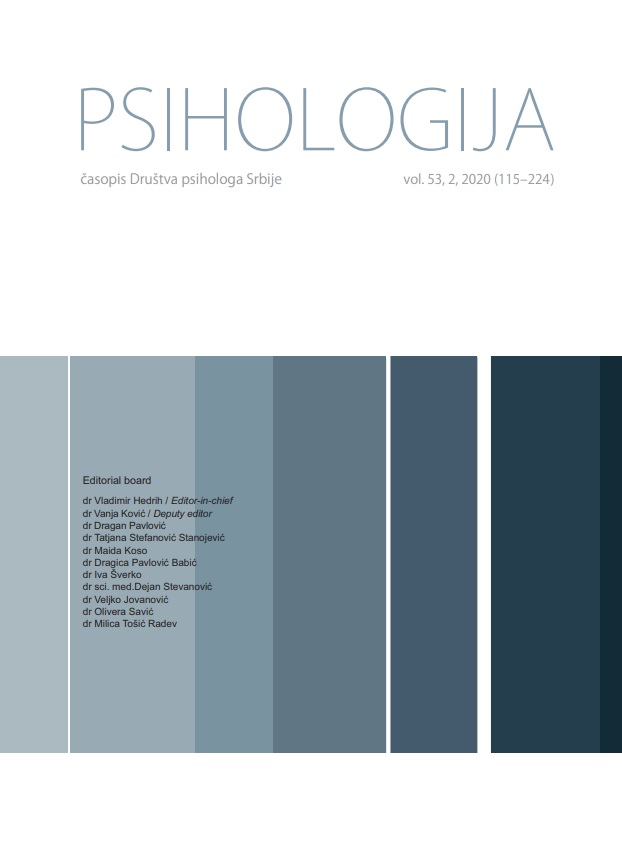Effects of unpleasant odors on emotion recognition: The right hemisphere and valence-specific hypotheses
Effects of unpleasant odors on emotion recognition: The right hemisphere and valence-specific hypotheses
Author(s): Miloš Stanković, Milkica Nešić, Jana MilićSubject(s): Neuropsychology
Published by: Društvo psihologa Srbije
Keywords: emotions;right hemisphere;odor;emotion recognition;
Summary/Abstract: The right hemisphere has traditionally been considered as dominant in odor and emotionperception, whereas little is known about odor influence on emotion recognition. Thisstudy aimed to examine a possible difference in the recognition of basic emotions presentedto the left or the right visual field following short-term left or right nostril treatment withan unpleasant odor. A total of 60 right-handed female participants completed an emotionrecognition task in conditions of the right and left nostril treatment with an unpleasant odor(isovaleric acid). Results showed the right hemisphere advantage in speed, but not in theaccuracy of basic emotion recognition after the right nostril treatment with an unpleasantodor, while the left nostril treatment had no effect. The right hemisphere and valence-specifichypotheses in emotion recognition were not confirmed, whereas the model of the righthemisphere dominance in odor perception was confirmed
Journal: Psihologija
- Issue Year: 53/2020
- Issue No: 2
- Page Range: 183-198
- Page Count: 16
- Language: English

